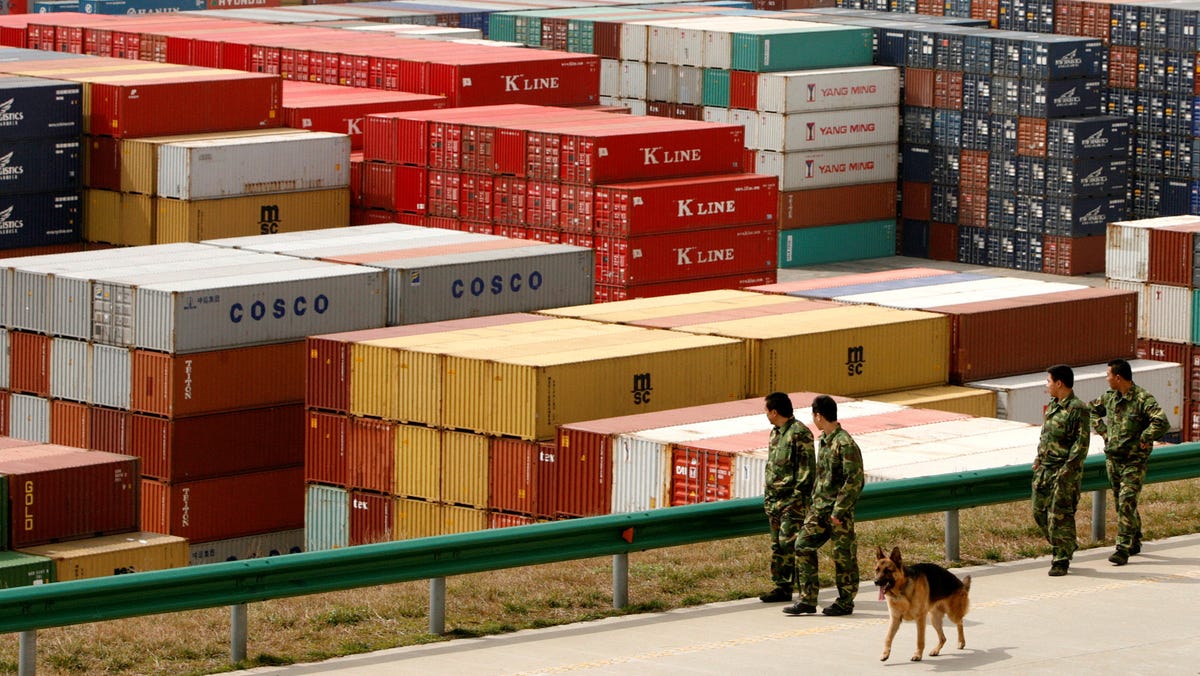President Trump calls tariffs ‘medicine’ as stock market plunges
President Donald Trump spent the weekend at a golf tournament in Florida as the stock market continued to plunge.
China vowed to “fight to the end” and accused the White House of “blackmail,” as tensions between the world’s two largest economies rose Tuesday after President Donald Trump threatened Beijing with additional tariffs.
Trump has demanded that China withdraw its retaliatory tariffs on the U.S. or face an additional 50% levy that would take U.S. duties on Chinese goods this year to 104% as early as Wednesday. The tit-for-tat standoff follows Trump’s announcement last week he was raising import taxes on Chinese goods to 54%, on top of earlier increases.
Beijing has already pledged to impose, effective Thursday, 34% tariffs on all imports from the U.S. China’s commerce ministry said that it would take further countermeasures if necessary to protect its interests. “The U.S. side’s threat to escalate tariffs against China is a mistake on top of a mistake,” the ministry said in a statement.
“China will never accept it.”
The Trump administration’s tariff plan impacts countries around the world.
The White House says a 10% minimum tariff on all nations and much higher levies on individual countries will boost the U.S. economy, manufacturing and protect jobs. It upends decades of trade practices. Economists warn it could spark a global recession. Financial markets have seen steep declines, though they are trading higher on Tuesday.
“If the tariffs keep going up and up, it becomes a battle of wills and principles rather than economics,” Xu Tianchen, senior economist for China at the Economist Intelligence Unit, told the Reuters news agency.
“It doesn’t matter if it goes up by 50% or 500%,” he added.
Trump has said he is not considering pausing the tariffs despite the turmoil they have caused in markets. He has appeared to open the door for negotiations. He met with Israeli Prime Minister Benjamin Netanyahu on Monday and said he is speaking with Japan and other countries. “They can both be true,” Trump said Monday. “There can be permanent tariffs and there can also be negotiations because there’s things we need beyond tariffs.”
Economists at JP Morgan have increased their forecast for the chance of a global recession to 60% and also expect that the U.S. will slip into recession, commonly defined as two quarters of negative economic activity, this year.
“Bilateral negotiations may still be possible, but retaliatory tariffs are accelerating with China’s announcements of tit-for-tat tariffs,” they said in a note to investors. “The EU (European Union) has expressed its preference to negotiate but also a willingness to use retaliatory tariffs and non-tariff tools.”
